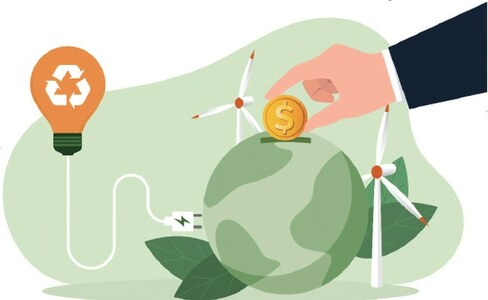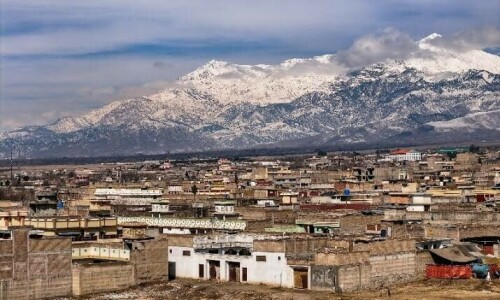LONDON, April 10: British Prime Minister Gordon Brown called on Thursday for action by the G8 main industrialised powers over the soaring inflation that has sparked mounting unrest around the globe.
Food riots have rocked Haiti and impoverished Burkina Faso, gripped by a nationwide strike, is the latest African nation to face unrest over the increasing cost of basic foods.
In a letter to Japan’s Prime Minister Yasuo Fukuda, Brown called for the issue be made a priority at this July’s summit of the Group of Eight, the world’s richest nations. Japan will chair the G8 summit in Hokkaido in July.
“For the first time in decades, the number of people facing hunger is growing. Food prices have risen sharply leading to food riots in several countries,” Brown wrote.
Brown called for a study of the impact of the switch from using crops for “biofuels” instead of feeding the population and action by the International Monetary Fund and World Bank on rising prices.
The EU has already warned that Africa faces an “humanitarian tsunami” due to the rocketing cost of essential foods.
And on Thursday French Minister for Human Rights Rama Yade said there should be a world conference on the issue. “Food security is a global challenge,” she told French radio.
EU Development Commissioner Louis Michel warned on Tuesday that Africa faced a new disaster if prices continued to rise.
“A world food crisis is emerging, less visible than the oil (price) crisis, but with the potential effect of real economic and humanitarian tsunami in Africa,” Michel said.
The rise in global food prices “poses significant threats to Africa’s growth, peace and security,” African finance ministers warned at a meeting in Addis Ababa last week.
Malaysia’s Prime Minister Abdullah Ahmad Badawi on Thursday proposed a national policy on food security, as rising prices and shortages cause havoc across Asia.
Analysts in Asia have warned that Bangladesh and the Philippines, where the poor currently spend around 70 per cent of their income simply on food, will be among the worst hit.
In Pakistan the price of the staple flat bread has doubled, whilst in India opposition parties are threatening anti-inflation demonstrations ahead of local elections.
In the Gulf states, heavily dependent on workers from Asia and the Arab countries, rising inflation has been a double-whammy, as most Gulf states peg their currencies to the tumbling dollar reducing the worth of remittances sent home by migrant workers.In Europe, France and Germany have seen “purchasing power” protests by sectors as diverse as civil servants, steelworkers and train drivers, and even a “pasta strike” consumer boycott in Italy last year.
Inflation in the 12-nation EU eurozone reached an all-time high of 3.5 percent in March.
In Romania, where many western European corporations have created plants to benefit from traditionally low-wages, workers at a Renault subsidiary, Dacia, are on strike for a near 50 per cent pay rise.
The management has so far offered about 25 per cent.—AFP












































Dear visitor, the comments section is undergoing an overhaul and will return soon.